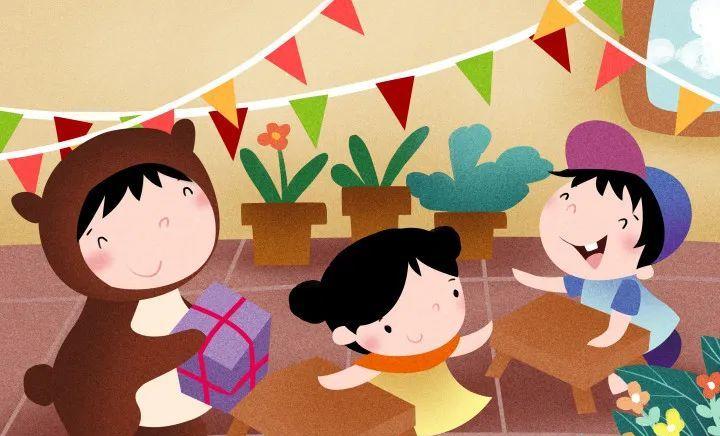Many kindergarten teachers often have these troubles when asking questions to their children.
The children had a lot of fun, and the teacher wanted to intervene but didn't look for an opportunity or say anything.
To ask, "What are you playing?" The children simply replied "playing in a small hospital" or looked awkwardly at each other, and the atmosphere and interest in the game were all ruined.
To be honest, many kindergarten teachers will only ask questions, not "high-level questions".
What are valuable, meaningful, high-level questions?
What preparations should be done to ask high-level questions?
At what time should I propose it?
Today, Xiao Wan came to tell the kindergarten teachers how to ask questions at a high level.
What is a high-level question?
The story of "Three Little Pigs" must have been told to children by teachers. How do you ask your child questions after telling the story? Let's compare the following two sets of questions:
1. How many little pigs are there in the story? / What color is the old wolf?
2. Can you describe this old wolf? / If these three little pigs were three little fish, how would they build a house?
The first set of questions that most young children can answer without much thought.
The second set of questions allows young children to engage in enriching cognitive activities and understand how they think.

Let's take another example of the entrance to the kindergarten:
1. How did you get to kindergarten this morning?
2. If you could kindergarten in any way you wished, how would you like to come? Why?
The first problem is only to let the toddler recall what just happened, and the process of thinking is relatively simple.
The second problem is to let young children develop a rich imagination, and the process of thinking is more complicated.
Now you know, what is a high-level question, right?
High-level questioning means that the teacher is integrated into the child's activities, asks the appropriate questions at the right time, and provides a scaffold for the child. Its answer is not simple and unique, but can trigger children's thinking and help children extend the plot of the activity.
How to ask questions at a high level?
So, how do we ask questions at a high level? Don't worry, start with imitation.
The following tables, using the Bloom Taxonomy (Revised Edition), list the high-level questioning points of 6 different cognitive levels applicable in different scenarios, from simple to complex, teachers can use it directly according to the actual situation!
Role areas
Kindergarten teachers should regularly assess whether the materials in the role area are convenient and available for young children. How do young children use materials?
Young children are then asked high-level questions to help them add their own thinking based on in-depth play and understanding of the content, laying a solid foundation for future learning.
Construction zone
Posting a list of high-level questions that are appropriate for building blocks in a place that is easy to view is a great way for teachers to try when implementing it in the early stages.
Meal times
The kindergarten teachers all resonate, and the children talk the most when they eat. Change your perspective and use meal time as an entry point for in-depth conversations with young children. Use questioning skills to support topic discussions, and toddlers will be very much looking forward to participating in topics of their own choosing!
Outdoor activities
Kindergarten teachers should provide opportunities for young children to talk to each other without being disturbed by adults; listen carefully to their conversations; and make notes with photos, texts, etc., which will become a guide for your future teaching activities.
Class
When discussing problems, young children are encouraged to come up with solutions to problems, but not all problems need to be solved. Sometimes young children only need to describe what happened in order to make their feelings recognized and others hear their hearts.